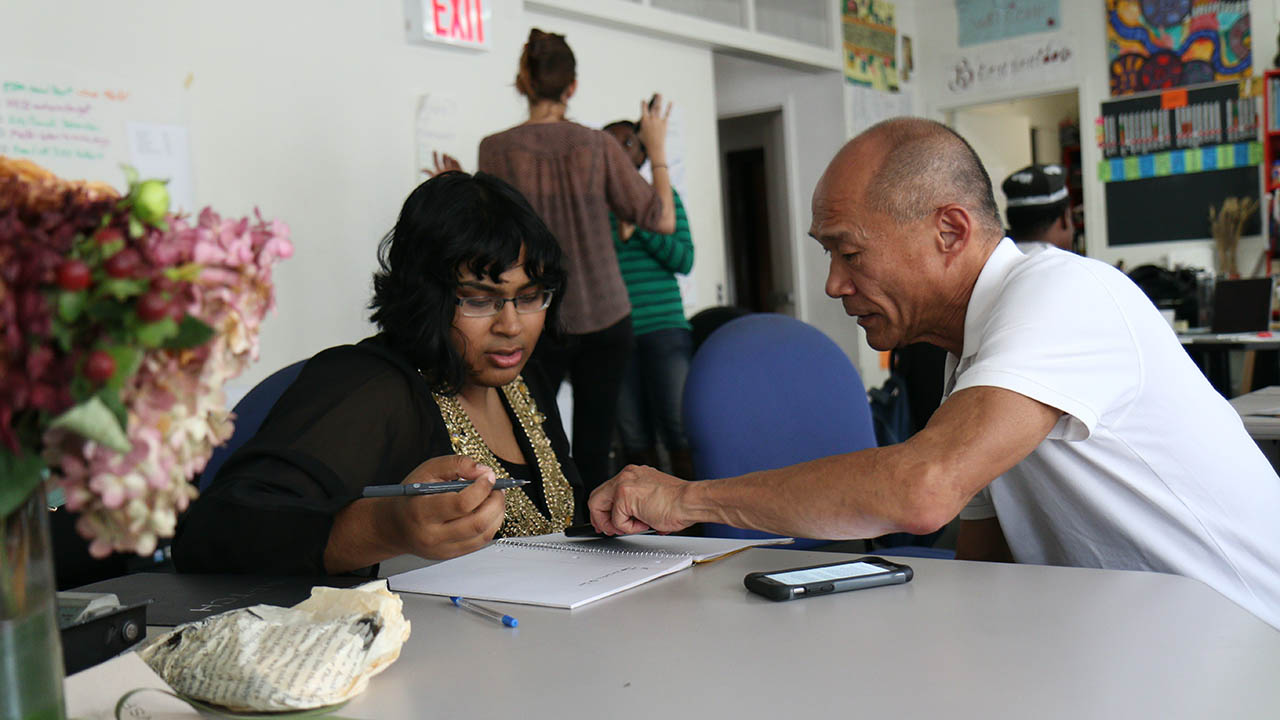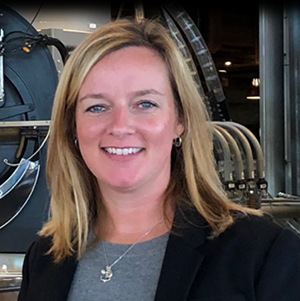
How You and Your Organization Can Mentor Future Employees Now – and Why You Should
Editor’s Note:
Chances are someone helped or inspired you – a family member, teacher, friend – along your path in school, work, or life. During International Mentoring Month earlier this year, we asked both mentors and mentees in Zebra-sponsored mentorship programs to reflect on the individual and societal impact of mentorship, how it plays into inclusion and diversity (I&D) and how you and your organization can pay it forward in your community through mentorship.
###
How do you define “mentor”? Are they an advisor, role model, sounding board, connector, cheerleader, confidant, or teacher? A mentor can be all that and more, formally through a program or informally through organic relationships. In fact, you may be a mentor to someone and not even know it.
It's good to be a mentor. You’re helping someone – showing them a path, giving direction and confidence to help them reach their goals. Learning from them and challenging your own thinking. And that feels good. But it’s also good for business.
Mentorship is vital to building a diverse, equitable and inclusive culture within an organization, benefiting us with diverse perspectives and experience which drive innovation and performance. Mentoring captures the intrinsic value of all employees and facilitates an inclusive approach to learning that benefits both mentors and mentees. This type of learning to advance I&D is also expected by the future workforce. Gen Z is predicted to make up nearly 30% of the global workforce by 2025, almost doubling by 2030. And eight-in-10 Gen-Zers say a company’s commitment to I&D is important when choosing an employer.
While many organizations have made strides in I&D and may be committed or goaled to it, they still struggle to attract diverse talent. Why? Is it due to a lack of access, awareness, knowledge, or guidance from talent who are more diverse? If potential job candidates are aware of the opportunities available to them, do they feel the confidence to apply or interview?
There’s a gap between many organizations’ intent to foster a culture of inclusion, equity and diversity and the reality of bringing it to life. Mentorship is key to closing that gap and ensuring we don’t miss out on opportunities to connect with and attract diverse talent. In fact, “Career” is one of the pillars of the 4C Model that now serves as a cornerstone for corporate I&D objectives, at least at Zebra. If we want to achieve greater workforce diversity, we must make all career paths – and ongoing career advancement – accessible to all. We can only do that through greater resource allocation to education, ongoing mentorship and more.
How can you or your organization begin to bridge the gap with mentorship?
Here are a few steps we’ve taken at Zebra, individually and as an organization, to attract more diverse talent and build more inclusion, equity and diversity through mentorship.
1. The Power of One
Mentoring doesn’t need to be part of a formal organized program. It can simply be one person proactively connecting with students. That was the case for Scott Froehlich, Senior Director, Operations, at Zebra. Committed to I&D, Froehlich realized he had to be more proactive to attract more diverse candidates to his team, the Holtsville, New York, office in which he works, and the company overall.
So, he began to reach out to community organizations to see what he personally could do to bridge the gap. He started with the National Society of Black Engineers (NSBE), which connected him to Zebra’s corporate NSBEZ group (which supports NSBE members employed by Zebra). Together, their small but mighty group developed a vision on how to attract more Black engineers/STEM candidates, becoming a sponsor of the National NSBE chapter along the way. Next, they aimed for more local connections, reaching out to local universities in New York and Illinois near Zebra offices, including Froelich’s alma mater, Stony Brook University in New York, which created a funnel-pipeline to opportunity.
They were soon on social media connecting directly with students via the NSBE and the universities’ social channels, expanding their reach to Asian and Hispanic women engineers. The first onsite event at Zebra featured lab tours, meeting with other employees and a panel discussion on how the students can transition from college to work.
These initial steps evolved into Scott joining Stony Brook’s Career Center’s Diversity Professional Leadership Network (DPLN), a year-long program designed for traditionally underrepresented and underserved students focused on career development and preparation. He worked with students throughout the academic year, which resulted in more one-on-one mentoring relationships that helped them prepare for the competitive hiring process that takes place at Fortune 1000 companies like Zebra. This paid off, as four students ultimately completed the recruitment process at Zebra and joined the company after graduation, including the former President of Stony Brook’s NSBE chapter, Jada Lindo, now a Mechanical Engineer at Zebra’s Holtsville, New York, office.
Lindo had no awareness of Zebra until she joined an on-site event via NSBE. She later said that seeing what we do in person “sparked an interest.” The connection to NSBE brought visibility to an organization Lindo wasn’t looking at initially. Froehlich reaching out to students via NSBE “played a big role” in her decision to join Zebra, she said:
“You want to go somewhere where you feel comfortable; I did appreciate the effort in promoting I&D initiatives. It makes a difference. It’s something our NSBE group talked about – making sure the companies we work for have a very inclusive environment.”
“Without the connection to NSBE and Stony Brook, meeting hiring managers in person via events, these students (like Lindo) may not have been aware of our organization, and we would have lost four great hires,” Froehlich said. “It’s been a great experience mentoring students who haven’t been in a corporate environment. It’s mutually beneficial and personally rewarding, not only for I&D, but being able to do something unique and special for diverse students.”
2. The Power of Partnerships
While individuals may proactively turn their passion into mentorship action, more formalized programs expand an organization’s reach to more students and employees. Some employers may require participation as part of their I&D or corporate social responsibility goals, underscoring its importance. Zebra’s relationship with the Education Business Partnership (EBP) in EMEA is a good example.
EBP brings employers together to help inspire the future workforce. Leaders from over 1,500 businesses across the UK, including Zebra, visit schools, showcase their organization, offer practical workshops, hold mock interviews, and help build resumes so students get a real feel for what the real world is like and can better prepare for their futures. It also inspires them to think in a new way about their future.
Stephanie Fuller, an HR Business Partner/Advisor for Zebra in EMEA, shared the story of a student who was passionate about technology, but her mom wanted her to be a doctor. During a visit to the Zebra Experience Center in Bourne End, she saw how tech solutions were used in the healthcare space and realized she didn’t have to try to be a doctor; she could work on tech solutions that make healthcare and people’s lives better. The exposure opened the door to new possibilities and the subsequent studies needed to get there.
This kind of visibility keeps an organization top of mind for the students, spurring conversations and interest and inquiries from students and others they know. The relationship has also sparked a new initiative at Zebra, the Cultivate Business Challenge, challenging students aged 11-18 to create something new with an existing product or solution across verticals. Five finalist teams will have the opportunity to present their idea to a panel of senior level Zebra executives, with the winning team receiving a cash prize.
“It’s a new dynamic approach that we hope grows across regions,” Fuller said.
Corporate Ambassador programs are another formalized way organizations can mentor students, as Zebra is doing with two STEM high schools in Chicago, near its Lincolnshire, Illinois, headquarters. Ambassadors mentor a classroom throughout the school year, benefiting students with different perspectives and providing access to job opportunities through the connection. As LaTrease Davenport, Corporate Engagement Manager at ChiTech Academy, where Zebra is a corporate ambassador said:
“The partnerships that are formed with companies provide long-lasting opportunities for our students. And companies get a chance to actually make a change in underserved communities, fulfilling their social responsibility.”
3. Be the Change or Get into Crisis Mode
It’s time we start thinking about the need to mentor future employees, particularly in underserved communities, as a crisis. It’s been an ongoing simmering-beneath-the-surface issue, and we need to bring more attention to it, just like we do for every other crisis.
Most companies have I&D goals and know the business and people case for building diversity is strong. Yet, according to McKinsey, there’s slow progress overall. It’s time for all of us, as individuals and organizations, to step up. Mentoring tomorrow’s workforce today is how we can do it.
We know it works both organically through the actions of individuals as well as with formal, structured organizational programs. Aim to reach more people; bring in more employees, customers, or partners. Something small can go big and create an impact. But it must start somewhere, by someone.
Step up what you can do, when and how you can do it. Organizations have the responsibility to attract more diverse talent. But to attract that talent, they also need to create awareness through connections, and share knowledge to build hard and soft skills through mentorship. Your actions will make a difference.
As Lindo explained, “There’s a lot we don’t know, so it’s really good to meet professionals, ask questions and learn through our mentors’ experiences, especially their trials and errors.”
Regardless of where a mentee ends up, at your organization or another or whatever they choose to do, “all of them are success stories in some form or another,” Davenport said.
###
Did You Know?
Muhammed Ali is honored each year on International Mentor Day (January 17). In celebrating his recognition, his widow Lonni Ali reminds us all:
“Mentors are special gifts to the world. They encourage, motivate, reinforce, and guide others to reach their own individual greatness. After all, mentors have the power to transform lives.”

Deanna Self
Deanna Self serves as the Director of Digital Strategy for Global Supply Chain and Repair at Zebra Technologies, where she is tasked with shaping and driving digital initiatives to optimize the global supply chain and repair processes. Bringing over 25 years of experience in sales, operations, and IT to her role, Deanna is passionate about leveraging technology to improve efficiency and customer satisfaction. Her expertise and forward-thinking approach are integral to her leadership in transforming Zebra's supply chain digital landscape.
Prior to this role, Deanna was responsible for the oversight and management of Zebra’s largest order fulfillment distribution center. She also spent over two decades in the food and beverage industry before joining Zebra, where she started out owning and operating her own distributorship and eventually served as an IT executive for Nestle USA.
Deanna holds a Master of Business Administration (MBA) from Queen’s University of Charlotte and was named one of Supply and Demand Chain Executive 2021 Pros to Know. She is also a winner of the Supply and Demand Chain Executive 2021 Women of Supply Chain award.






